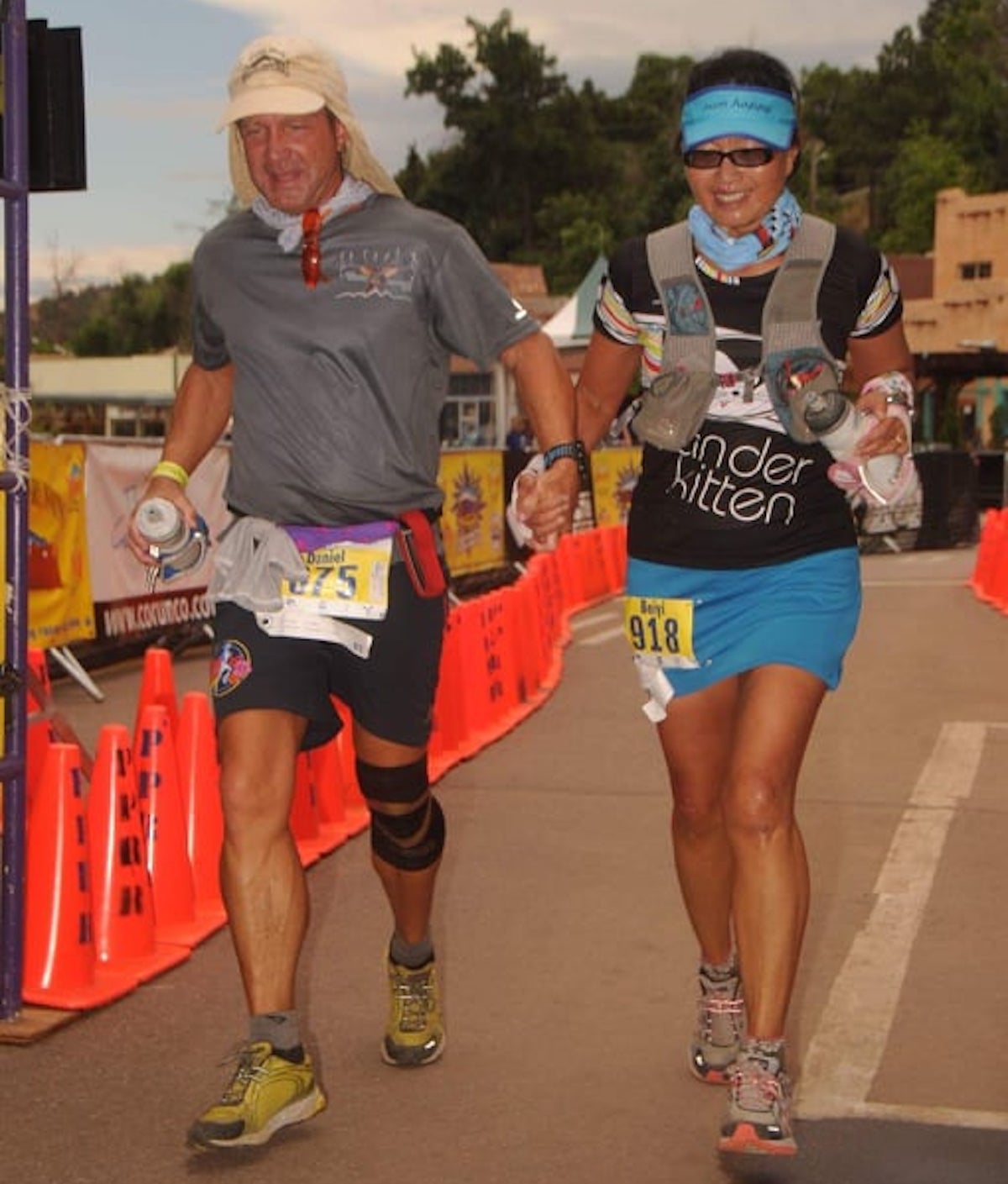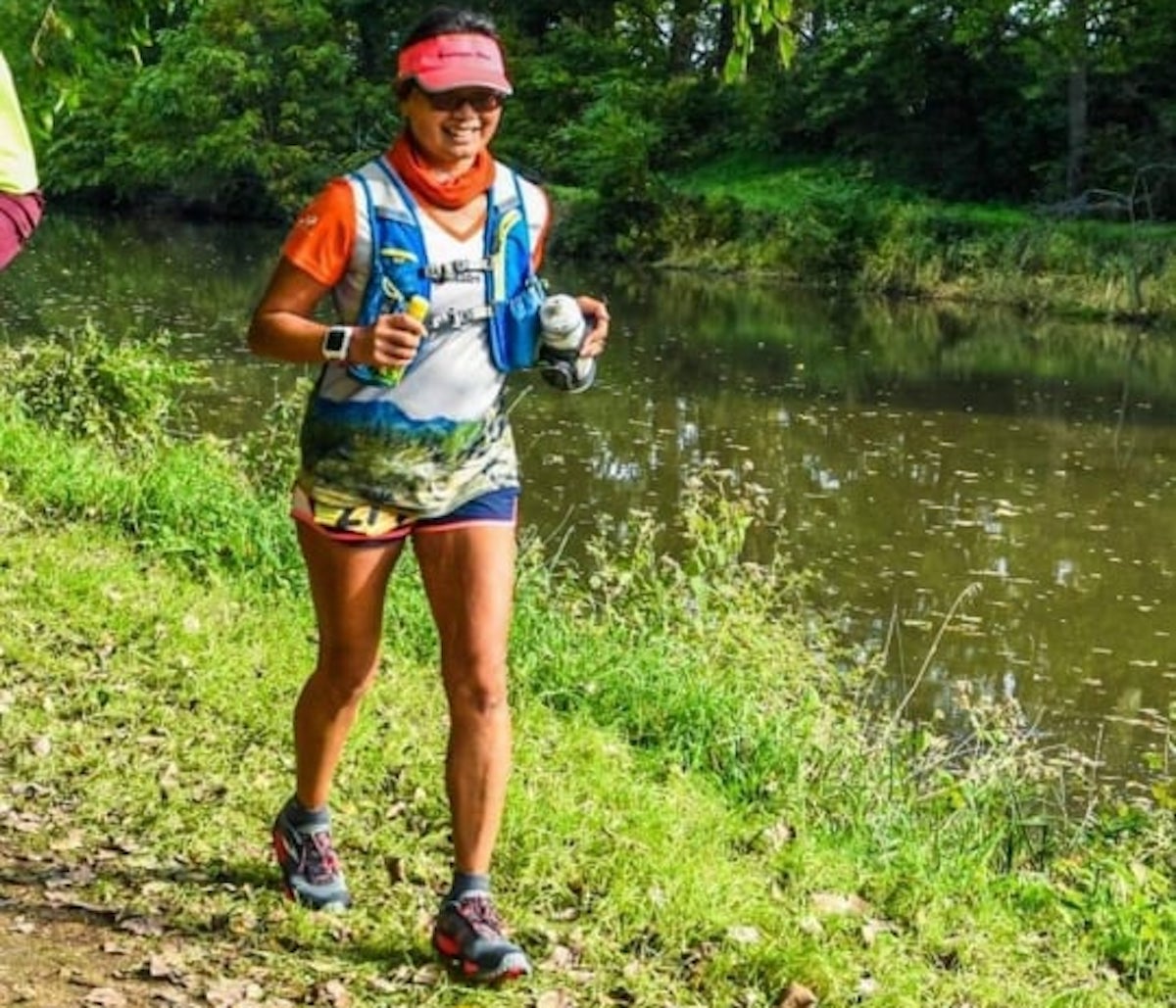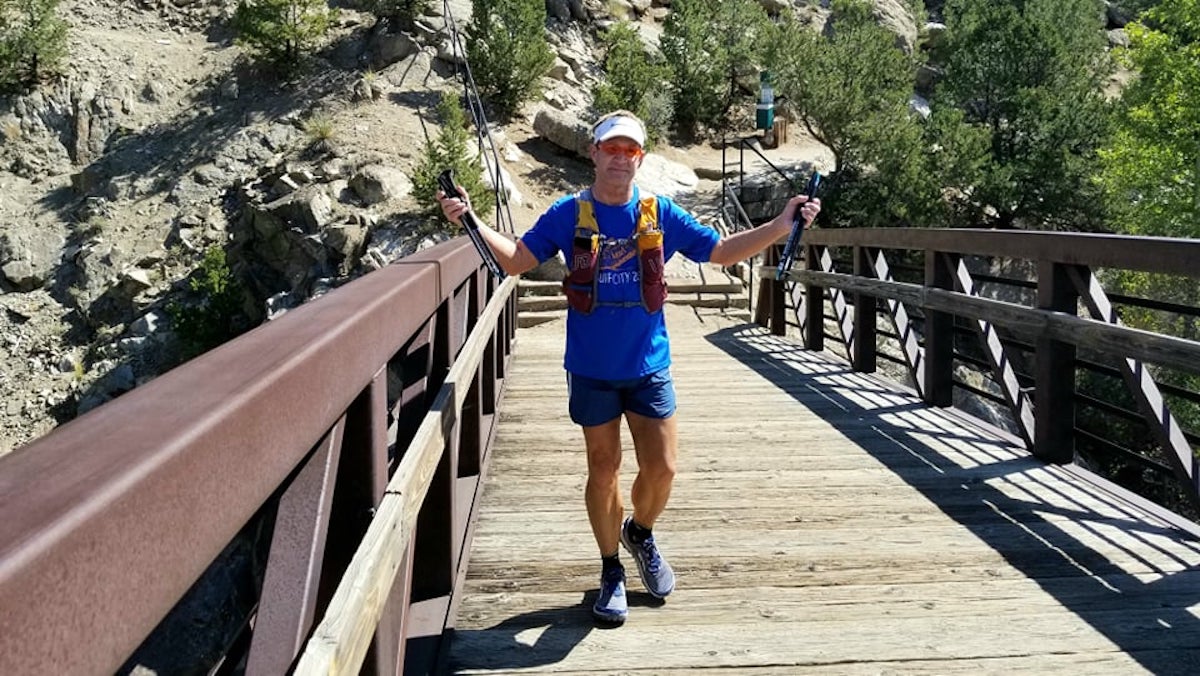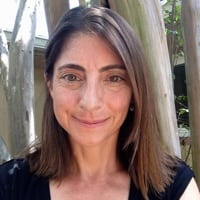What if there was an ultramarathon out there made just for grandmaster-age runners, a place where aging athletes could run with each other and within generous cutoffs?
Turns out, this kind of ultra already exists! I recently learned about the Grandmaster Ultras, an event with four ultramarathon distances in Arizona designed for competitors 50 years of age and older. You might be unfamiliar with this race like I was, but many veterans and legends of our sport are not.
Because this article series is an exploration of what is possible for ultrarunners as they age, focusing on the state of racing for runners over the age of 45, what better focal point for an article than this event and its leaders?
I contacted Grandmaster Ultras race directors Beiyi Zheng and Daniel Wilson to understand why they thought their race was necessary and what they had against less mature runners. I think you will find this discussion about race cutoffs and their impact on aging runners thought-provoking.
[Editor’s Note: This interview has been edited for clarity and brevity.]

Grandmaster Ultras race directors Daniel Wilson and Beiyi Zheng during a running tour of Ireland in 2018. All photos courtesy of Beiyi Zheng.
iRunFar: What inspired you to start Grandmaster Ultras?
Daniel Wilson: We moved to the desert four years ago, and we just thought it’d be a great place for a race. Of course, we’ve done a lot of 100 milers where they don’t give you enough time to finish. We got kind of tired of that cutoff stuff. We thought, Well, why don’t we give people enough time for them to actually finish a 100 miler? We figured we’d do that, and it’d be something different.
iRunFar: Why limit it to runners ages 50 and above? Why not simply have generous cutoffs, but keep the race open to runners of all ages?
Wilson: Well, to me, 50 years old is when people start gradually slowing down. Forty-year-olds are still pretty fast. I’m not knocking all the 50-year-olds as slow. But the majority of them start slowing down at that age. Plus, 50 is the grandmaster age group.
[Editor’s Note: Runners aged 40 to 49 are considered masters athletes, runners aged 50 to 59 are grandmasters, and runners aged 60 and up are senior grandmasters.]
iRunFar: Was having difficulty making cutoffs yourself your main inspiration? Or did you create Grandmaster Ultras in response to friends who were also beginning to have a hard time meeting cutoffs?
Wilson: It was a little bit of both. It’s kind of frustrating when you almost finish a 100 miler, but you’ve only got an hour left, and you’re not going to be able to make it. A lot of older runners are DNFs when you look at the results. They are out there, but they’re always DNFing. And we kind of got to that point too. It’s just frustrating. We just thought it was a great idea to give everybody a chance, whether it be their last ultra ever or their first one. They get a taste of what it feels like to finish.
[Editor’s Note: Since the Grandmaster Ultras’s first year in 2019, the number of 100-miler finishers has increased steadily. In 2021, 30 runners over the age of 50 finished the 100 miler. Three of those runners were over the age of 70. In 2020, four of the finishers were over 70. The 100-kilometer distance also had four finishers over age 70 last year. Bill Dickey was the oldest runner at age 81, finishing the 100k in 42:08:57.]
iRunFar: Are most of your participants longtime ultrarunners?
Wilson: There are a lot of legends and veterans. There’s probably about a handful who are first-timers.
Beiyi Zheng: There are also a few who had an illness and recovered and decided to come back for an ultra to see if they can do it again — especially the 50k.
iRunFar: What distance has the most participants?
Zheng: Last year, we had about 60 runners start the 100 [miler], and about 30 finished. About 20 of those dropped down to the 50 miler.
iRunFar: Your response to being frustrated with meeting cutoffs was to create your own race. Another tactic could have been to ask race directors to consider extending their cutoffs for you and other aging athletes. If it’s not a safety or permit issue, do you think race directors should consider having cutoffs that make it possible for more grandmaster athletes to finish?
Zheng: You have to have some kind of cutoff. Otherwise, some people are going to take forever. But older runners want to have some fun out there, and not just worry about making cutoffs. We have a 48-hour time limit, so you still need to do two miles per hour to do 100 miles. Bill Dickey always does the [Grandmaster Ultras] 100k. He was 81 years old last year. He’ll do 50k, take a nap, get something to eat, and then go out again and do another lap. He has a great time at 81 years old. After he finished, he said, “You have a race for old people, but you have a course for 20-year-olds.”
Wilson: One problem though is that volunteers don’t like to stay around [that long]. Our volunteers are usually around for 48 hours. A lot of races probably wouldn’t be able to do that.
iRunFar: Could you just have aid stations without volunteers?
Zheng: Volunteers need to be there. The longer the race, the more crucial the volunteers. One year I did a 200-mile race. I reached 100 miles and it was close to the cutoff, and they started to pack up. The job is actually taking care of the runners, not just spending that amount of time out there.
iRunFar: What has changed for you about running ultras since you started?
Zheng: When I started, I think I was more serious about training and following a training plan religiously. Sometimes I forgot about why I started running. You know? It was not just for the distance or for the time but to actually enjoy the experience. As I get older, the more I enjoy the experience, as long as I can meet the cutoffs.
Wilson: I started doing 5k and 10k [races] in the early 1990s, and I worked my way up to half marathons. Then I started doing marathons, and I ran marathons in all 50 states. I got to the point where I was doing [multiple] marathons in two states in a weekend. It just seemed like I needed more. I made sure I hit all the toughest 100 milers. [Then] I feel like I got burned out on it. I gave it a break. Of course, the last couple of DNFs didn’t help much. I know I need to get back into it. I need to get back into it to get healthy.
iRunFar: Do you think if races had age-group records on their websites it would cause more older runners to get excited about racing? Would going after an age-group record excite you?
Zheng: Yeah, I think that might.
iRunFar: Do you think runners would be interested in a list of races like yours that have generous cutoffs?
Wilson: I know they would be.
iRunFar: What qualifies as a generous cutoff? Thirty-six hours for a flat, non-technical race?
Wilson: Maybe a little longer.
iRunFar: What about a mountain race?
Zheng: I think at least 48 hours.
[Editor’s Note: In 2021, 21 of the 30 competitors at Grandmaster Ultras finished in over 30 hours. Ten of those finished in over 36 hours and six completed the race between 40 and 48 hours. Well over half the participants took more than 30 hours to finish the 100 miler in 2019 and 2020.]
Call for Comments
- What are your thoughts on cutoffs and if or how they limit age demographics?
- Do generous cutoffs affect how accomplished you feel crossing the finish line of an ultra?
- Would a list of ultras with cutoffs over 36 hours be useful to you?



